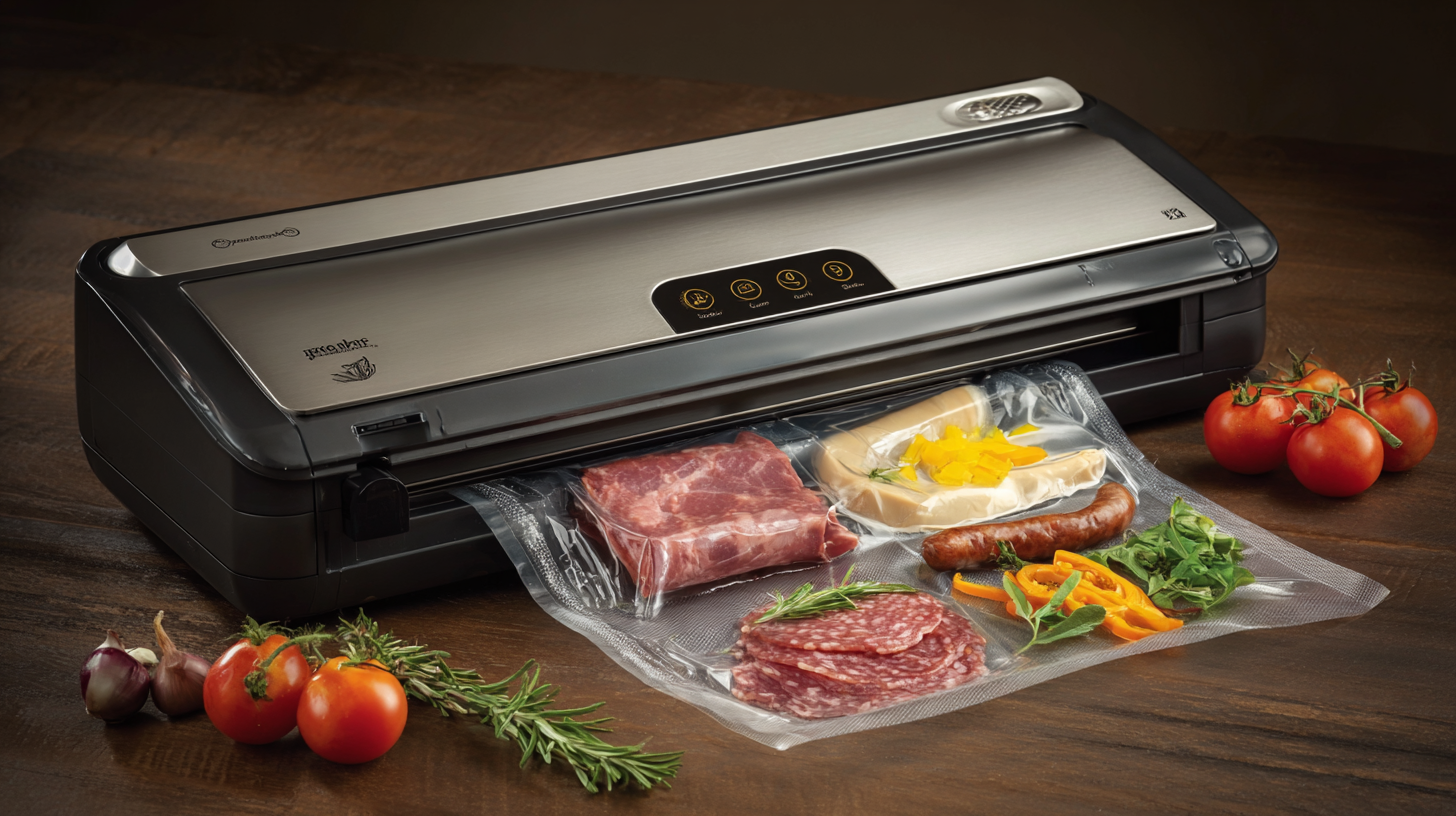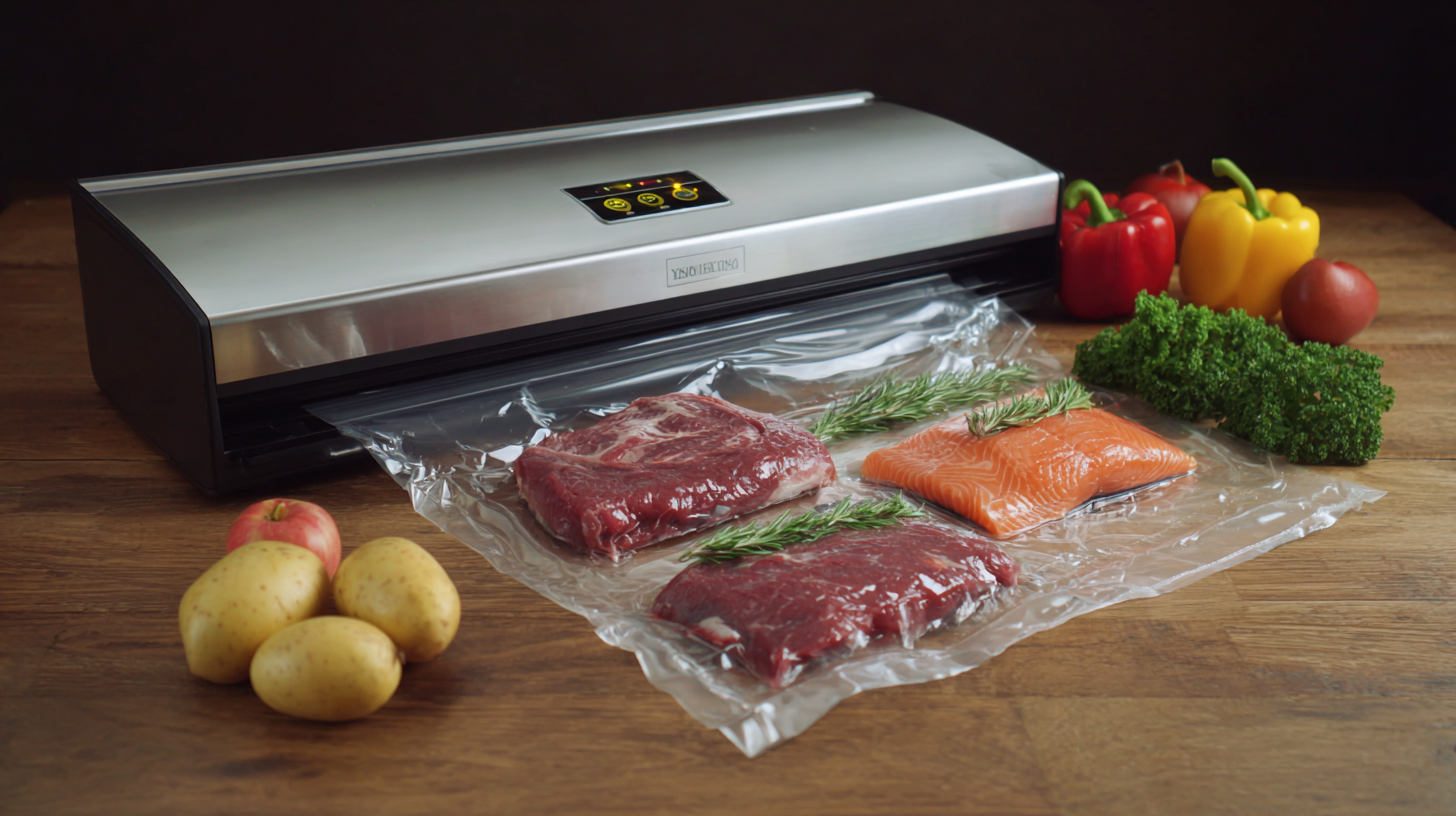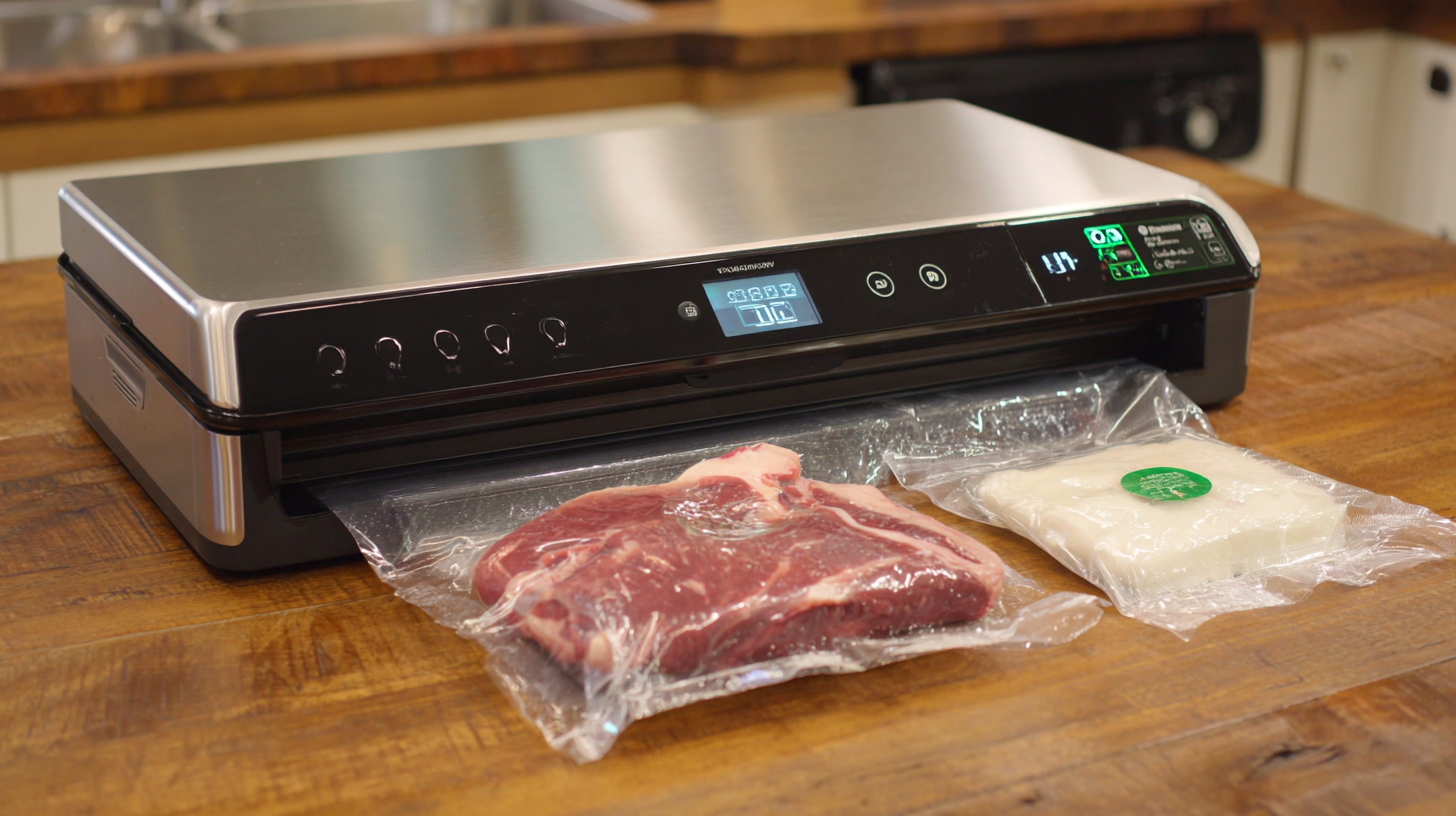About Us | Blog | FAQs | Tips/Troubleshoot | Contact Us | Machine Manuals | Demo Videos
Unlocking the Advantages of the Best Commercial Food Vacuum Sealer for Your Business
In today’s competitive food industry, maintaining product quality while maximizing efficiency is paramount for success. A recent report by Technavio highlights that the global vacuum packaging market is set to grow by over $17 billion in the next few years, driven by the increasing demand for preservation methods in commercial applications. At the heart of this growth is the commercial food vacuum sealer, a pivotal tool that not only extends the shelf life of perishable goods but also reduces food waste significantly. By removing air from packaging, these sealers help in preserving the freshness, flavor, and nutritional value of food products, making them essential for businesses aiming to enhance their operational efficiency and reduce costs. Embracing this technology allows food businesses to keep pace with modern consumer demands while optimizing storage and transport processes.

Table of Contents
[Hide]
Understanding the Importance of Commercial Food Vacuum Sealers in the Food Industry
In the fast-paced food industry, maintaining freshness and extending the shelf life of products are paramount. This is where commercial food vacuum sealers come into play. These devices play a crucial role in preserving food quality by removing air from packaging, which prevents oxidation and bacterial growth. Utilizing a vacuum sealer not only reduces food waste but also enhances the overall efficiency of food storage, allowing businesses to streamline operations and save on costs.

Furthermore, commercial food vacuum sealers offer significant advantages in terms of portion control and inventory management. By vacuum-sealing ingredients in pre-determined portions, businesses can ensure consistent servings and minimize overproduction. This precision not only aids in budgeting but also improves customer satisfaction, as patrons receive uniformly prepared meals. As competition increases in the food industry, investing in reliable vacuum sealing technology can be a game-changer, providing a strategic edge to those committed to quality and sustainability.
Key Features to Look for in a High-Quality Food Vacuum Sealer
When selecting a high-quality commercial food vacuum sealer, several key features can significantly enhance your business operations. First and foremost, the chamber size is crucial. According to a report by IBISWorld, the food packaging industry has seen a steady annual growth rate of 5.2%, indicating a rising demand for efficient packaging solutions. A versatile vacuum sealer should accommodate various bag sizes to cater to different food types, ensuring optimal preservation.

Another important feature is the sealing method. Commercial vacuum sealers typically utilize either a chamber or external design. Chamber sealers are preferred for large volumes and liquids, while external sealers are ideal for small to medium batches. Research from the Food and Drug Administration indicates that proper sealing can extend shelf life by 2-3 times, reducing food waste significantly.
Tips: When evaluating vacuum sealers, consider investing in models with dual seal bars for improved efficiency and durability. Additionally, seek machines with adjustable vacuum strength to prevent crushing delicate items. Utilizing these features will not only enhance food preservation but also contribute to cost savings and operational efficiency in your business.
Comparative Analysis of Leading Brands in Commercial Vacuum Sealers
In the competitive landscape of the food service industry, choosing the right commercial vacuum sealer can dramatically enhance efficiency and preserve the quality of products. According to a report by IBISWorld, the commercial vacuum sealing market is projected to grow at an annual rate of 4.5% through 2025, underscoring the increasing reliance on these systems. Leading brands such as FoodSaver, VacMaster, and Weston offer distinctive features tailored to various business needs. For instance, the FoodSaver Pro 2100 series boasts an automatic moisture sensor, ideal for sealing watery items, while VacMaster’s Ventless Sealers cater specifically to high-volume operations, enabling continuous sealing with minimal downtime.
A comparative analysis of these brands reveals significant differences in sealing capabilities and durability. The Weston Pro-2300, recognized for its robust construction, is favored by meat processors due to its ability to handle heavy-duty tasks and frequent use. Meanwhile, VacMaster’s VP Series offers a chamber vacuum sealing option, which is especially beneficial for sous vide cooking or liquid-rich foods. According to a survey by Market Research Future, 75% of restaurants reported that vacuum sealing improved their inventory management and reduced waste, proving that the right equipment can drive profitability. As businesses aim to enhance operational efficiency and product longevity, investing in the best vacuum sealer tailored to their specific needs becomes increasingly crucial.
Unlocking the Advantages of the Best Commercial Food Vacuum Sealer for Your Business - Comparative Analysis of Leading Brands in Commercial Vacuum Sealers
| Feature | Brand A | Brand B | Brand C |
|---|---|---|---|
| Max Seal Width | 16 inches | 14 inches | 12 inches |
| Vacuum Strength | 25 inHg | 20 inHg | 22 inHg |
| Seal Time | 15 seconds | 12 seconds | 10 seconds |
| Power Consumption | 150 W | 120 W | 130 W |
| Portability | Portable | Stationary | Semi-portable |
| Warranty | 3 years | 2 years | 5 years |
Cost-Benefit Analysis: Is Investing in a Professional Sealer Worth It?
Investing in a professional food vacuum sealer can be a game-changer for businesses involved in food storage and preservation. According to a report by the Food Packaging Association, businesses that utilize vacuum sealing can extend the shelf life of their products by up to 5 times compared to traditional storage methods. This significant increase in longevity not only reduces food waste but also allows for better inventory management, ultimately leading to cost savings. A well-functioning vacuum sealer can also decrease the risk of freezer burn and spoilage, ensuring that high-quality products maintain their freshness until they reach the consumer.
Moreover, the initial investment in high-quality commercial food vacuum sealers often pays off quickly. A study by MarketsandMarkets estimates that the global food vacuum packaging market will grow from $24.4 billion in 2021 to $32.5 billion by 2026, driven by increased demand for food safety and preservation. For businesses, the cost-saving benefits of reduced spoilage and longer-lasting products can lead to increased profit margins. In essence, while the upfront costs may be considerable, the long-term financial advantages of investing in a professional vacuum sealer make it a wise decision for any business committed to quality and efficiency.
Real-World Success Stories: Businesses Thriving with Vacuum Sealing Technology
Businesses across various sectors are increasingly turning to vacuum sealing technology to enhance efficiency and preserve product quality. Restaurants, for instance, have reported notable improvements in food storage and waste reduction. By investing in a high-quality commercial food vacuum sealer, they can extend the shelf life of perishable items, maintaining freshness while minimizing spoilage. This not only cuts costs but also allows chefs to better manage inventory, ensuring that ingredients are always available when needed.
In the retail sector, companies have harnessed the power of vacuum sealing to streamline packaging processes. A gourmet food shop recently shared how transitioning to vacuum sealed packaging resulted in a dramatic increase in customer satisfaction. Products remained fresher for longer periods, leading to positive feedback and repeat business. Additionally, vacuum sealing has allowed these shops to offer a wider range of products, including bulk items that attract budget-conscious consumers. Overall, the real-world success stories highlight the transformative potential of vacuum sealing technology, enabling businesses to thrive in a competitive market.

